(QBĐT) - The Department of Construction has recently focused on implementing the mechanism of autonomy and self-responsibility in public service units (PSUs). Thanks to that, the quality of public services provided by these units has been improved.
Currently, the Department of Construction has 5 affiliated units, including: Provincial Traffic Construction Investment Project Management Board, Bus Station Service and Management Center, Motor Vehicle Registration Center, Construction Planning Institute (QHXD), Construction Quality Inspection Center. These are units implementing financial autonomy according to Decree No. 60/2021/ND-CP, dated June 21, 2021. Autonomous units self-guarantee regular expenditures (group 2), are assigned 100% financial autonomy according to the decision of the Provincial People's Committee.
The Institute of Urban Planning and Construction has an organizational structure consisting of 1 director, 3 deputy directors and 6 professional departments, with a total of 60 staff members. The Institute began to implement financial autonomy from December 24, 2021 according to Decision No. 4283/QD-UBND of the Provincial People's Committee.
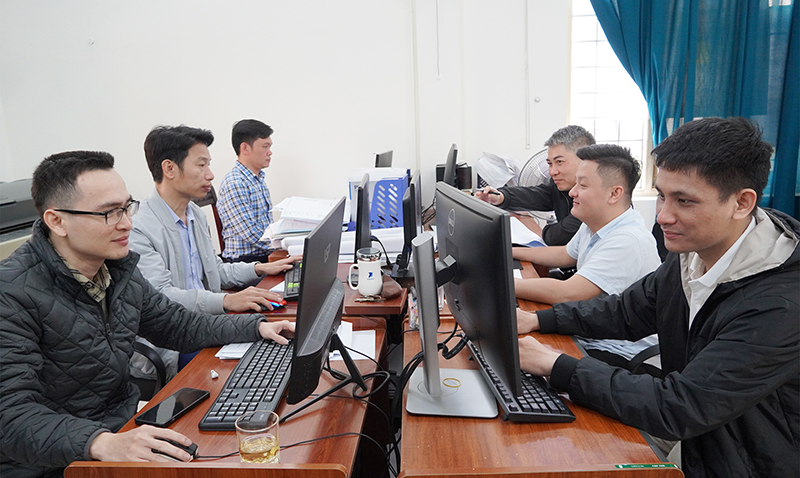 |
Director of the Institute of Urban Planning and Development Pham Xuan Thao said: “When given autonomy and financial responsibility, the unit has proactively used financial resources for professional activities to improve efficiency and service quality. At the same time, it has reasonably allocated production expenses, applied measures to practice thrift and combat waste to create additional income for cadres, civil servants and workers; set aside funds for reinvestment and development. In today's market economy , it requires the unit to be creative, dynamic, and regularly innovate in plans and methods of production activities, and to find jobs to create revenue for the unit...”.
In addition to the advantages, the Institute of Urban Planning and Construction still faces some difficulties when implementing financial autonomy. That is, the unit must find ways to increase its revenue due to the complete cut of revenue from the state budget. Some regulations on public financial management are still inflexible, with many constraints that make it difficult for the unit to expand its services or cooperate with outsiders. When being financially autonomous, the unit must face fierce competition from private enterprises, which have many advantages in terms of open mechanisms and flexible operating methods.
To overcome difficulties, in the coming time, the Institute of Urban Planning and Development will implement a number of solutions, such as: Diversifying revenue sources, expanding production and business activities and expanding markets beyond the province; promoting public-private cooperation, linking with other businesses and units to improve competitiveness in job search; improving reputation and product quality to increase competitiveness; building a reasonable revenue and expenditure plan, practicing thrift, cutting unnecessary expenses... Thereby, ensuring regular expenses, regimes, and income for cadres and civil servants, completing the tasks and plans set out.
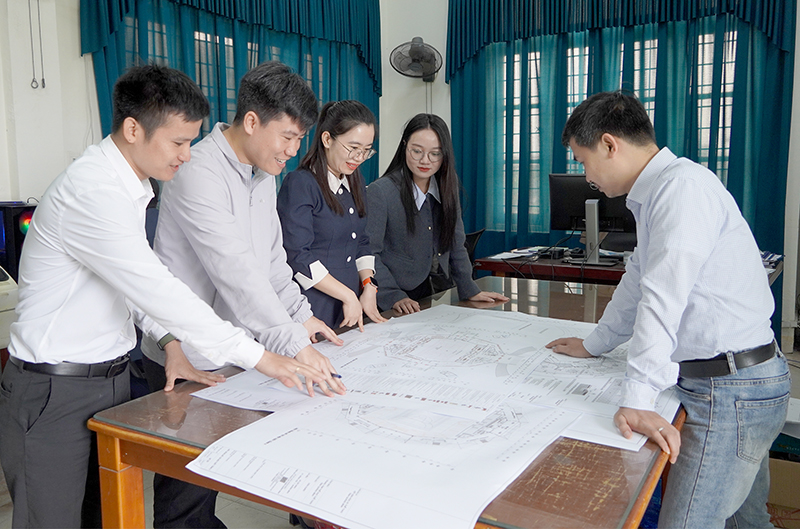 |
The Provincial Traffic Construction Investment Project Management Board currently has 59 officials and employees. According to Director Nguyen Ngoc Quy, with a 100% financial autonomy mechanism, the unit has developed internal spending regulations and public asset management regulations; annually, supplementing and amending them to comply with current regulations. During its operation, the board has closely followed the contents of the regulations and financial regimes to comply with the state's regulations. Notably, to avoid problems in the autonomy mechanism and management of revenue sources from project works, the board has proposed the need for a unified general regulation to create conditions for autonomous units to ensure regular expenditures operate effectively.
| According to the report of the Department of Construction, with the efforts in implementing the financial autonomy mechanism at the public service units in recent times, the income and living standards of officials have increased over the years, and the rights of employees have been guaranteed and stabilized. The income of civil servants and employees has increased steadily every year, from 2022 to 2024, the units increased by an average of 10-30%. |
According to the assessment of the leaders of the Department of Construction, the policy of granting autonomy to public service units is necessary and correct. This has contributed to improving operational efficiency and maximizing the initiative and creativity of the units. When granted autonomy, the units are more autonomous in production, business and service activities, and more proactive in allocating and using their financial resources to improve efficiency and service quality.
In addition, units also proactively seek jobs, innovate in production plans and methods to increase revenue. The mechanism of autonomy and self-responsibility also contributes to promoting units to be proactive and creative in rearranging the organizational apparatus, arranging and using cadres and civil servants in accordance with the functions, tasks, powers and organizational structure of each unit. Most units have built internal spending mechanisms and regulations on public asset management, so they have the conditions to manage and use funds effectively and economically; regulations on the allocation of additional income for cadres and civil servants are implemented publicly, transparently and democratically...
In particular, the autonomy mechanism has created for cadres and civil servants in the unit to enhance their sense of personal responsibility, always put collective interests first, be aware of preserving common assets and using budget expenditures for the right purposes to ensure transparency and democracy in budget collection and expenditure... This is also an outstanding result in the administrative reform work of the Construction industry in recent times.
Le Mai
Source: https://www.baoquangbinh.vn/chinh-tri/202504/so-xay-dung-nang-cao-tu-chu-tai-don-vi-su-nghiep-cong-lap-2225595/


![[Photo] General Secretary To Lam, Secretary of the Central Military Commission attends the 12th Party Congress of the Army](https://vphoto.vietnam.vn/thumb/1200x675/vietnam/resource/IMAGE/2025/9/30/9b63aaa37ddb472ead84e3870a8ae825)

![[Photo] Panorama of the cable-stayed bridge, the final bottleneck of the Ben Luc-Long Thanh expressway](https://vphoto.vietnam.vn/thumb/1200x675/vietnam/resource/IMAGE/2025/9/30/391fdf21025541d6b2f092e49a17243f)
![[Photo] President Luong Cuong receives President of the Cuban National Assembly Esteban Lazo Hernandez](https://vphoto.vietnam.vn/thumb/1200x675/vietnam/resource/IMAGE/2025/9/30/4d38932911c24f6ea1936252bd5427fa)
![[Photo] The 1st Congress of Phu Tho Provincial Party Committee, term 2025-2030](https://vphoto.vietnam.vn/thumb/1200x675/vietnam/resource/IMAGE/2025/9/30/1507da06216649bba8a1ce6251816820)
![[Photo] Solemn opening of the 12th Military Party Congress for the 2025-2030 term](https://vphoto.vietnam.vn/thumb/1200x675/vietnam/resource/IMAGE/2025/9/30/2cd383b3130d41a1a4b5ace0d5eb989d)


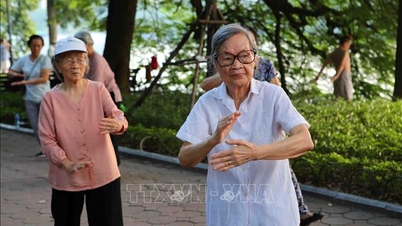

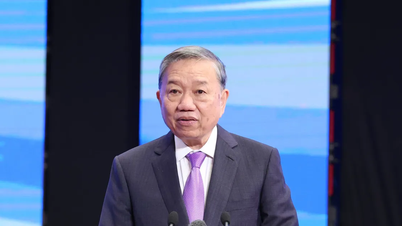



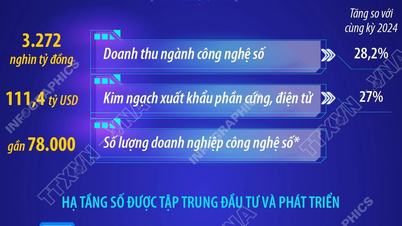

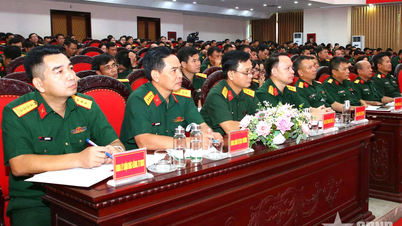

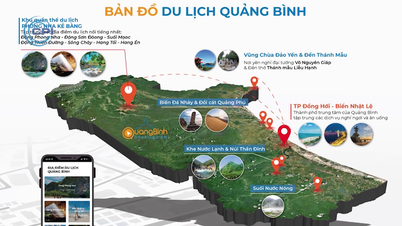

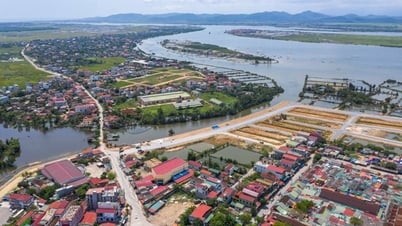

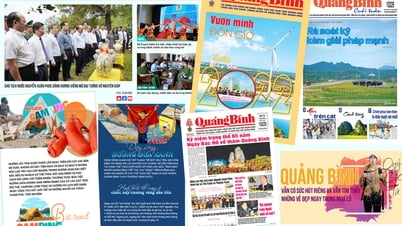
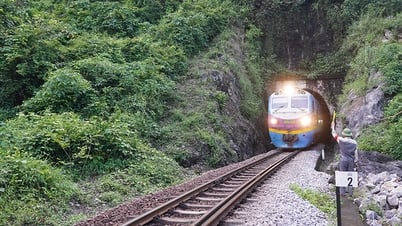
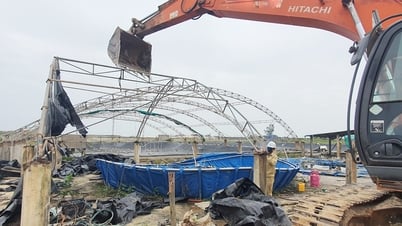
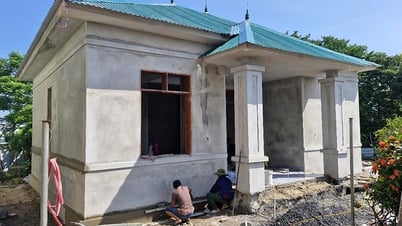




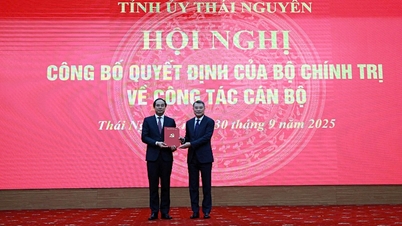




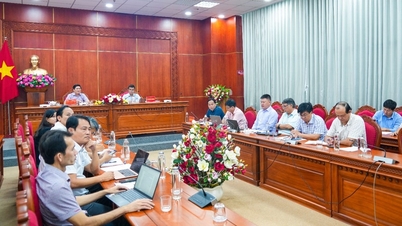


































































Comment (0)